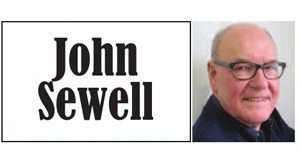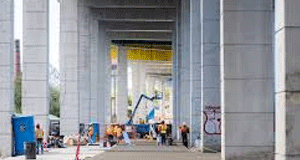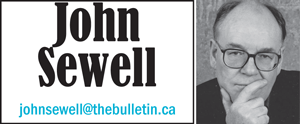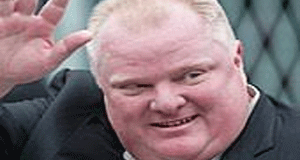John Sewell —
Pan-handling is the world’s second oldest profession. While begging is often the  practise of the down-and-out as they scrounge to survive, it is also carried on by the respectable and well-to-do to meet their needs.
practise of the down-and-out as they scrounge to survive, it is also carried on by the respectable and well-to-do to meet their needs.
And so it was that Mayor John Tory went to Ottawa in mid-February to ask the two political parties in opposition to help Toronto with money to meet the city’s needs.
Admittedly, those parties don’t now have surplus funds at their disposal, but as Mayor Tory made clear to them, if they are victorious after the federal election this fall, they will be able to increase taxes and turn the money over to Toronto.
The mayor said he thought they listened closely to the pitch.
A month earlier he had attended on Stephen Harper’s government in Ottawa for the same purpose, and on Kathleen Wynne’s government in Queens Park, again reporting that he was well received.
Then, a few days after the recent Ottawa trip, Mayor Tory went begging for money from two of the city’s bigger companies to keep some of the city’s skating rinks open a few weeks longer than planned, given that the weather remains so cold and the rinks so popular with the public.
He said the city, with its $10 billion annual budget, couldn’t find the $220 000 which was required.
Two companies initially agreed to contribute the money: Maple Leaf Sports and Entertainment, which not only owns the faltering Toronto Maple Leafs, but whose directors are involved with one of the city’s largest development companies; and Green for Life, the company which holds the contract for collecting garbage in the west half of the inner city and that surely hopes to put in a bid to collect garbage in the eastern part of the inner city when that tender is announced, something the mayor promised during the election campaign. NOTE: Green for Life has pulled out, replaced by Tim Hortons.
Maybe we should be pleased that a mayor has been elected who is so good at this game and has no shame in playing this role.
He runs a city which has the lowest property tax rate in the whole of the Greater Toronto area; he has promised to keep the tax rate increase for 2015 below the rate of inflation so that owners will pay less in real value terms than last year; and he has the power to levy other taxes (including a vehicle registration tax) but declines to do so.
Often when we are faced with pan-handlers on the street we wonder how they got into this position, and why they can’t manage their own affairs more successfully.
And we wonder whether our 50¢ donation will be squandered. I’m not sure any of these questions arise when the mayor makes his ask. At city hall, there are a number of voices embracing a different approach than begging. City manager Joe Pennachetti, who is retiring at the end of April, has said he will advocate every day until his retirement that Toronto needs a sales tax to help fund its many obligations.
It is thought that a 1% increase in the HST would provide about $2 billion a year in new revenue for the city.
Some councillors agree. Councillor Joe Cressy wrote recently in the Toronto Star, “After four years of racing to the bottom, hunting for a fictitious ‘gravy train,’ it has become abundantly clear Toronto does not have a spending problem. We have a revenue problem.”
He continued, “We need to have a realistic conversation about the revenue tools we need to build the city we want.
“These aren’t phantoms or dreams; most major cities around the world have access to a broad range of revenue tools that are currently unavailable to the City of Toronto.” Cressy agrees that access to the HST is certainly an option he wants to discuss.
Councillor Shelley Carroll thinks that the review of the City of Toronto Act, which is 10 years old, needs to include giving the city new taxing powers such as the HST. She hopes this can be a major issue of discussion during the next year, once the current budget is approved in March.
She hopes this can be included in discussions about the 2016 budget.
City financial staff have already said the city is $350 million short for next year. Filling that hole will take a great deal of successful pan-handling. Instead, as a responsible level of government, the city should ask the province to give it new tax revenue tools like the HST so the city can meet its financial needs without begging.
John Sewell is a former Mayor of Toronto
 TheBulletin.ca Journal of Downtown Toronto
TheBulletin.ca Journal of Downtown Toronto


